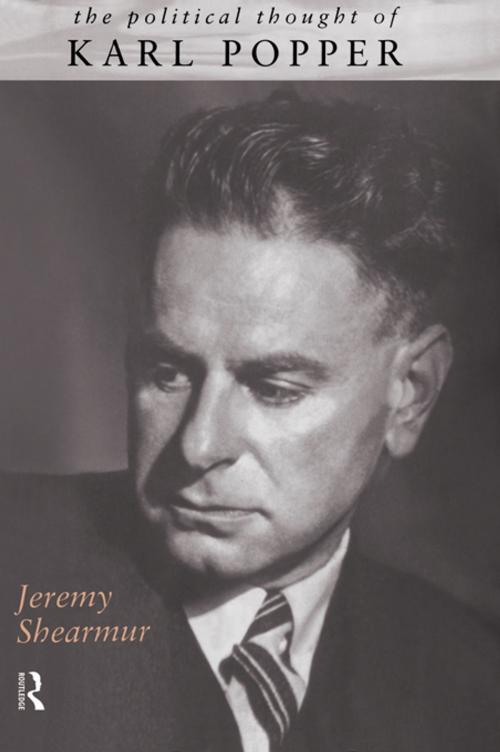| Author: | Jeremy Shearmur | ISBN: | 9781134861668 |
| Publisher: | Taylor and Francis | Publication: | September 11, 2002 |
| Imprint: | Routledge | Language: | English |
| Author: | Jeremy Shearmur |
| ISBN: | 9781134861668 |
| Publisher: | Taylor and Francis |
| Publication: | September 11, 2002 |
| Imprint: | Routledge |
| Language: | English |
The Political Thought of Karl Popper offers a controversial treatment of Popper's ideas about politics, informed by Shearmur's personal knowledge of Popper together with research on unpublished material in the Popper archive at the Hoover Institute.
While sympathetic to Popper's overall approach, Shearmur offers criticism of some of his ideas and suggests that political conclusions should be drawn from Popper's ideas which differ from Popper's own views. Shearmur introduces Popper's political ideas by way of a discussion of their development, which draws upon archive material. He then offers a critical survey of some of the themes from his Open Society and Poverty of Historicism, and discusses the political significance of some of his later philosophical ideas. Wider themes within Popper's philosophy are drawn on to offer striking critical re-interpretations of his ethical ideas and social theory. The book concludes with a discussion which suggests that Popper's views should have been closer to classical liberalism than they in fact were.
The Political Thought of Karl Popper offers a controversial treatment of Popper's ideas about politics, informed by Shearmur's personal knowledge of Popper together with research on unpublished material in the Popper archive at the Hoover Institute.
While sympathetic to Popper's overall approach, Shearmur offers criticism of some of his ideas and suggests that political conclusions should be drawn from Popper's ideas which differ from Popper's own views. Shearmur introduces Popper's political ideas by way of a discussion of their development, which draws upon archive material. He then offers a critical survey of some of the themes from his Open Society and Poverty of Historicism, and discusses the political significance of some of his later philosophical ideas. Wider themes within Popper's philosophy are drawn on to offer striking critical re-interpretations of his ethical ideas and social theory. The book concludes with a discussion which suggests that Popper's views should have been closer to classical liberalism than they in fact were.















